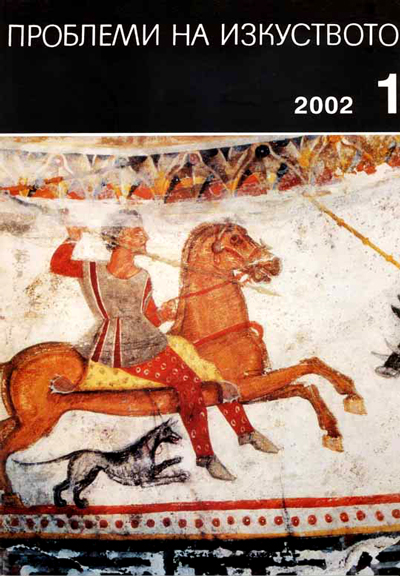Героят в българското тоталитарно кино - герой, жертва, мъченик и светец на утопията
The Hero in Bulgarian Totalitarian Cinema - Warrior, Victim, Martyr, and Saint of the Utopia
Author(s): Ingeborg Bratoeva-DaraktchievaSubject(s): History, Fine Arts / Performing Arts, Cultural history, Special Historiographies:, History of Communism, Film / Cinema / Cinematography
Published by: Институт за изследване на изкуствата, Българска академия на науките
Summary/Abstract: Bulgarian cinema developed during the totalitarian period an extensive film epos about the central myth of the communist Utopia - the myth of the so-called positive hero, determined to destroy the old world, and to impose a new social order. This myth, adopted from the Soviet culture as an element of the social-realistic aesthetic, had been modified on Bulgarian screen accordingly to national characteristics and reality changes. The Hero evolved from a Warrior to a Demiurge in several films, shot from 1950’s to 1990’s. Following the ideological transformations, he appeared as a Victim, Martyr and Saint of the Utopia, acting in narratives which shifted from the metaphor of ultimate combat to the allegory of a permanent fight. Bulgarian cinema had an ambivalent approach to the Hero’s metamorphosis from a rebel to a victorious ruler (the archetypal transition from a Warrior to a King.) The few films dealing with this conversion put queries to the opposition Utopian myth/social reality - therefore, in most cases, these works were disapproved by the censorship and their authors suffered political condemnation. The political changes in the 1990’s started a process of discrediting the Utopian Hero. The new Bulgarian films criticized exactly the Hero’s position of power and opened a discussion about the methods with which the Utopia had been imposed on society. Regarding the style, the most of these last decade films are still bound to a social-realistic aesthetic. Distracting the Utopian myth, Bulgarian film-makers simply reversed the opposition's of the totalitarian cinema and kept using the old formulas, stuffing them with opposite contents.
Journal: Проблеми на изкуството
- Issue Year: 2002
- Issue No: 1
- Page Range: 58-62
- Page Count: 5
- Language: Bulgarian
- Content File-PDF

